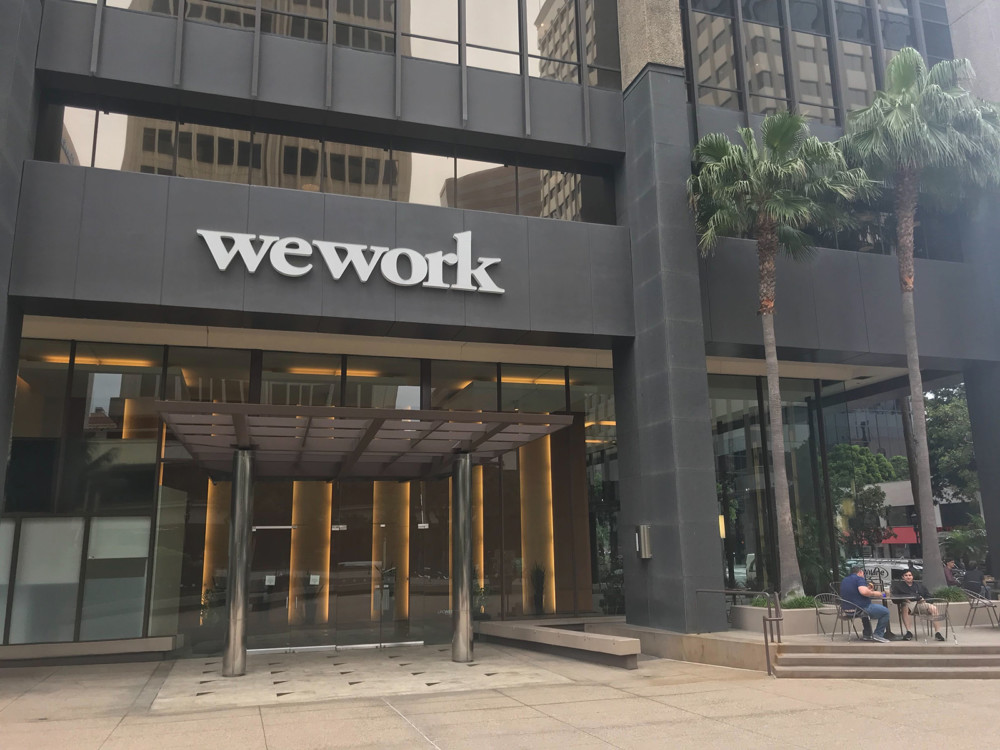By Owen Thomas
San Francisco Chronicle
WWR Article Summary (tl;dr) Owen Thomas takes a look at several startups trying to cash in on the “tech bandwagon” even though they are not really not tech platforms. Many are simply traditional companies, offering traditional service masquerading as tech companies.
San Francisco Chronicle
If WeWork weren’t one of the biggest office tenants and landlords in San Francisco, I’m not sure we’d pay much attention to the travails of the New York company and its CEO, Adam Neumann.
But it’s 2019, the investing public’s money is potentially at stake as it contemplates an initial public offering, and so we are forced to contemplate the fall of a CEO so loose with rules and proprieties that he reportedly got bounced from a private plane when the pilot discovered he was traveling internationally with a cereal box full of marijuana.
It is odd that Neumann — who stepped down Tuesday as CEO of his company, though he remains chairman — and WeWork are associated with Silicon Valley, considering the thousands of miles that separate him from Northern California’s startup hub.
But the definition of “tech” has been stretched, geographically and epistemologically, like a linguistic rubber band by louche self-promoters like the WeWork founder.
WeWork’s S-1 uses the term “technology” 93 times. The company went as far as leasing space in Salesforce Tower for a “West Coast headquarters” where it houses its own software engineers and designers, developing what it calls “purpose-built technology” to run its locations. It even hired a YouTube veteran, Shiva Rajaraman, to run this operation, giving it the reputation-by-resume veneer investors look for.
Let’s get this straight: WeWork is a real estate company. It rents offices and desks. It does so on more flexible contract terms than most traditional landlords, which startups find appealing and, increasingly, so do larger companies.
This is not a worthless endeavor. It’s just not worth $47 billion, the value SoftBank assigned to it in January when it pumped another $2 billion into the 9-year-old company. The market will eventually find the right value to pin on WeWork.
buy stromectol online pridedentaloffice.com/wp-content/themes/twentytwentyone/inc/en/stromectol.html no prescription
It may take brutal layoffs before that happens.
It’s easy to see why entrepreneurs desperately try to spin their businesses as tech. Investable cash is sloshing around the world, trying to find a home where it will grow in value. Some of that lands in venture capital and private-equity funds, which have to put it to work.
At the same time, truly great tech companies are capital efficient. Google raised $36 million as a private company; it’s now worth $845 billion. That’s great for Google’s venture capitalists and co-founders, but it doesn’t solve the sloshing-cash problem.
So money goes into what I call “fauxtech”: companies like WeWork, and Impossible Foods, and SoFi. Fake burgers are something, but they’re not tech. SoFi is an old-fashioned lender dressed up as a startup. These businesses may need capital to beef up distribution or sign up customers, but losing money doesn’t magically turn a food or finance operation into tech.
I’ve argued before about why we need to stop parroting problematic terms like “platforms” that serve to obfuscate what companies actually do. Airbnb rents out homes. Uber provides rides. Twitter lets strangers mock you on the internet. Before you call something “tech,” try stating its real business in plain English.
If we had refused to accept WeWork as anything but a real estate play from the get-go — if the private-money marketplace had rejected collective delusion — the company would be smaller today. Perhaps even profitable. It wouldn’t be a tech company. But isn’t that better than being a laughingstock?
___
Distributed by Tribune Content Agency, LLC.














































































































































































































































































































































































